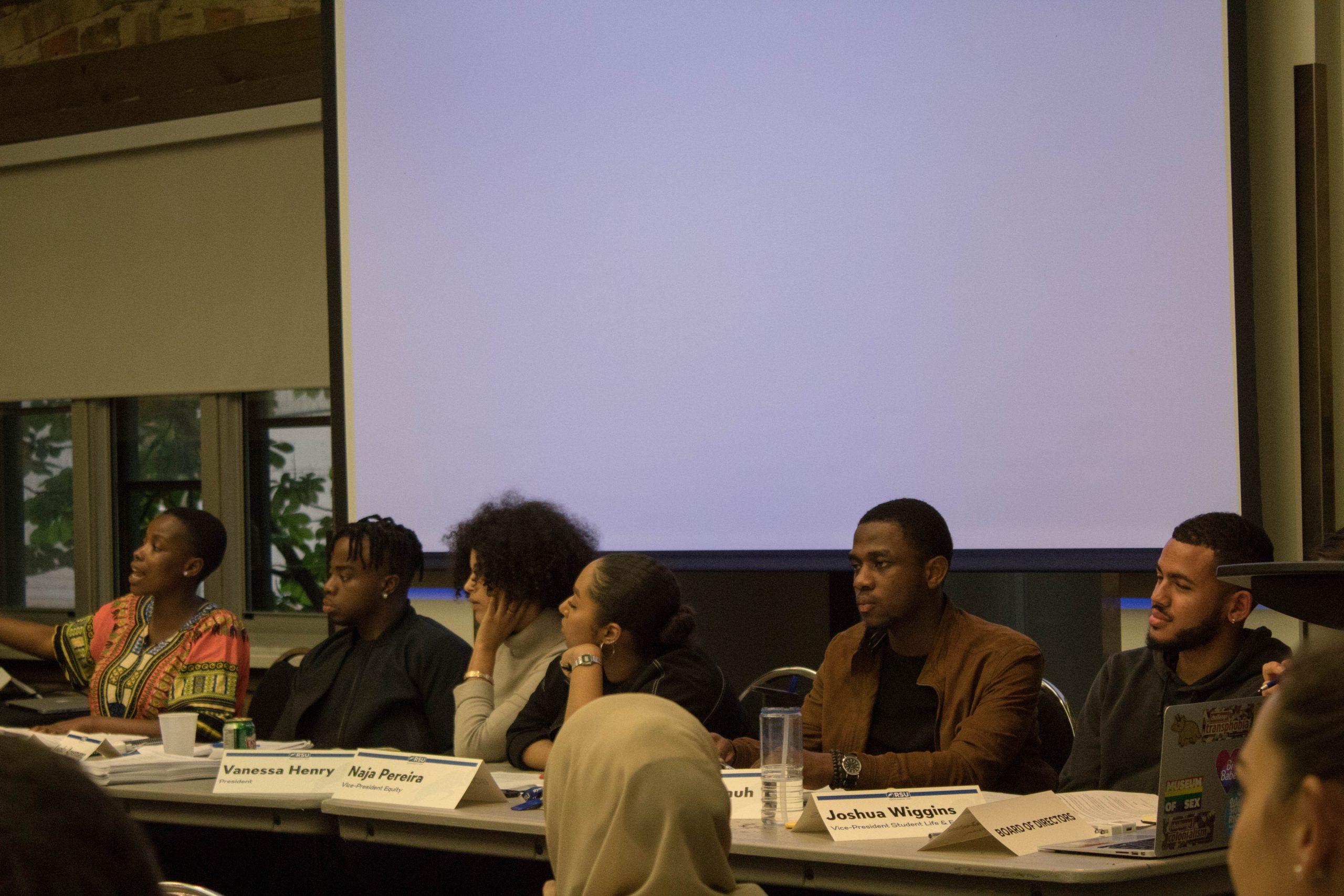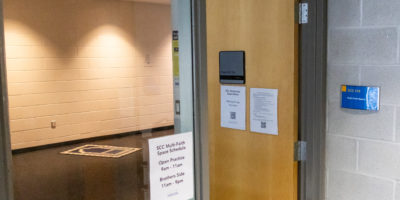By Madi Wong and Valerie Dittrich
A motion to hold executives accountable for not working their minimum amount of hours was passed at Ryerson Students’ Union (RSU) emergency Board of Directors (BoD) meeting on Wednesday.
The emergency BoD meeting was called to discuss internal matters within the RSU including holding executives accountable for failure to fulfil their hours and addressing the concerns of the RSU’s podcast.
The motion to hold executives accountable for their hours worked—put forth by RSU president Vanessa Henry—passed.
According to the motion, executives have been asked “three times” to work at the RSU’s hours of operation from 10 a.m. to 6 p.m. but “many of them refuse to abide by this rule.” In addition, executives have argued that they are “flexing their hours” which is not permitted under their agreement.
Flexing hours is when employees vary their hours of work outside of their contracted hours. This typically involves employees altering their clock-in and clock-out timings that change from day to day in comparison to a traditional 9 a.m. to 5 p.m. work schedule.
The motion’s clauses state that executives will be brought to the BoD for impeachment if they break the RSU bylaws. This includes not gaining the president’s approval for vacation time and not completing their 40-hour workweek.
Due to this motion being discussed privately among the board in an in-camera session, The Eyeopener was not present for the discussion on it among BoD members and the executives.
“When you have students who become managers and CEOs…We’re in charge of project management and holding ourselves accountable,” Henry said in an interview with The Eye. “But a lot of times, that means [people] not showing up and no one can tell you [need to be at work] because it’s this idea of ‘I’m my own boss.’”
In addition, Milad Moghaddas, Ted Rogers School of Management (TRSM) director, cited concerns with the way the RSU is going about executing their podcast.
The podcast, titled “Verified”, centers around Henry speaking to celebrities and influencers about their lived experiences and aims to focus on equity and mental health.
The equipment, purchased from Long & McQuade, was approved by the BoD over email, according to Moghaddas.
Henry said that there was a miscommunication between her and someone in the finance department since she thought that she didn’t need to have the board or the executives approval on the invoice.
She said that the RSU had budgeted around $10,000 for the audio equipment, but ended up spending just under $9,000.
The night before the cheque for the equipment was printed, Henry said that she was told by someone in the finance department she was actually supposed to bring it to the board and executives.
“Without any bias, if the board said, ‘No, this isn’t a good initiative,’ I would have just stopped and didn’t send the money,” she said.
Henry said that the executive director, Reanna Maharaj, told her to give the board 24 hours to vote on if they should buy the equipment and the vote passed in Henry’s favour.
Vice-president marketing, Victoria Anderson-Gardner, said that Henry should have consulted FCAD directors and executives before sending it to the board, as half of the executive are students hailing from that faculty and would give better insight on how the RSU should proceed with the podcast.
“If you continue to come for me, you’re actually preventing me from doing great stuff,” said Henry. “I’m never going to lose sleep on whether or not you think this is a good initiative.”
Here’s what else you missed at Wednesday’s BoD meeting.
New accountability committee formed
Moved by student groups director James Fotak, this motion created a new oversight review committee policy that will handle all internal complaints within the RSU.
Before the creation of this committee, there was not an efficient way for RSU members to make a complaint in their workplace.
The committee will consist of three BoD members, one graduate representative, an executive member and the executive director.
Vice-president education Kwaku Agyemang said he thinks the “main issue with the committee is the conflict of interest” of having board members on the committee.
In response to Agyemang, Zaynab Dhalla, Faculty of Community Services director, said that there is no HR person within the RSU which makes this a difficult process.
“This is what exists now … That is a valid concern but hiring an HR person is in [the RSU’s] power,” she said.
According to Faculty of Arts director Chris Randall, the format of filing a complaint was taken from Ryerson’s sexual assault complaint policy but was modified to include more detail.
Randall said that if there is a conflict between two people, the issue would first go to the moderator—the executive director.
“If one of the two parties says, ‘I’m not happy with the resolution,’ then the problem would go to the committee … and hence start the investigation,” said Randall.
After a roll call vote, the motion passed.
Monthly town hall meetings to be implemented
At the Oct. 22 BoD meeting, Anasofia Heilbron, Faculty of Ted Rogers School of Management director, put forth a motion to implement monthly town hall meetings for each faculty.
This motion would create a space for students to discuss any questions or concerns they may have with the RSU. Each town hall would require one BoD and one executive member to be present.
The motion was tabled in October due to Heilbron not being present to amend it. But on Wednesday, the BoD voted in favour of implementing town halls.
The next BoD meeting will be the semi-annual general meeting on Nov. 27.













Leave a Reply